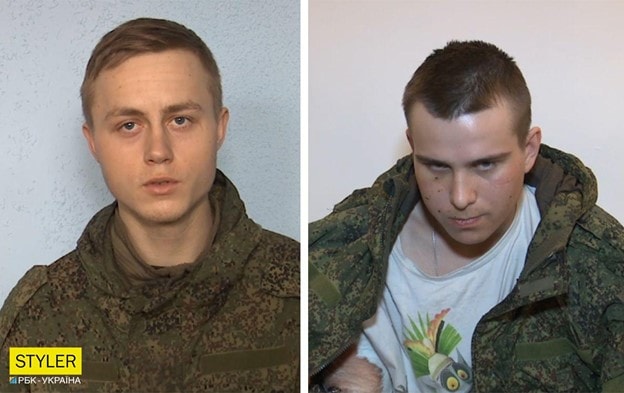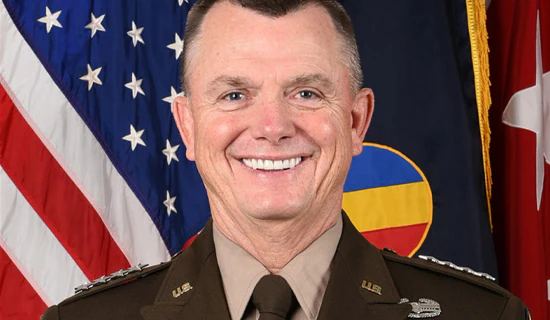Observers have been surprised by the Russian Army's performance so far in the Ukraine having expected a great improvement in its overall performance as compared with the 2008 war with Georgia. Another area where the Russian Army had presumably made great strides was in the field of human resources. The new Russian army had presumably become a professional army solicitous of its soldiers' welfare. In an extensive interview translated by MEMRI in October 2019,[1] Russian Defense Minister Sergey Shoigu took pride in the much-improved living conditions of Russian soldiers.
On February 28, 2022 the liberal newspaper Novaya Gazeta, edited by Nobel Peace Prize laureate Dmitry Muratov, published an article titled 'Mama, I Love You, If There's a Funeral Notice, Don't Believe It Right Away' based on interviews with two Russian women, whose son and grandson were MIAs in Ukraine. From the interview it emerges how young Russian are hoodwinked or coerced into signing up as professional soldiers. The promises made to them particularly in terms of pay are unredeemed and they are forced to make contributions to the army and even pay for their uniforms.
The article by the newspaper's special correspondent Irina Tumakova follows below:[2]

Russian POWs in Ukraine. (Source: Rbc.ua)
"We are not aware of the actual losses sustained suffered by the Russian army in Ukraine. Different sources cite different numbers, but all of them are terrible, and there is no confirmation or denial from the Russian Defense Ministry. And not even a week has passed since the start of the 'special operation.'
"Just two of my conversations with the relatives of young Russian soldiers (with the mother of one and the grandmother of the other) explain a lot. True, their 'boys' are contract soldiers. However, these are contract soldiers, who have not finalized their compulsory service. In your opinion, how [well] will such 'soldiers' fight? And for what? Why should they be maimed and killed in a country, whose people even the Russian president called 'brotherly' only yesterday?
"Just read the words of their loved ones. They allowed me to disclose their names and their children's names, because these women are overwhelmed with anxiety, they just want to know where their children are now. The command didn't even dignify them with a cursory response.
"His mother's name is Yelena Alexandrovna Abramova. Her son is a school teacher of English and French by profession. He serves in the motorized rifle brigade with the rank of corporal (according to his mother).
"Pavel graduated from Derzhavin Moscow State University and immediately enlisted in the army. He was drafted in spite of his flat feet and generally poor health.
"'He is well-read, has a rich vocabulary. Since childhood he was fond of books by Ernst Junger and Remarque, often repeating a phrase from a film "such a profession as defending the motherland does exist," said the soldier's mother. For that reason, Pavel did not try to dodge the compulsory service call. He was sent to serve in the Far East from Ryazan Oblast, where his mother lived. There, according to his mother, he changed his mind and decided against professional army service. However, later he was 'voluntarily compelled' to sign a contract.
"'Everyone who refused to sign a military contract was sent to a 'rigging station,' it's a sort of special training ground, where you have to carry heavy boxes with ammunition all day long. Many of the servicemen could not stand it and signed a contract eventually, simply to return to normal service conditions. My son got such a severe back problem that he ended up in the hospital. And he decided he would never return to the rigging station and it was preferable to sign a contract. Besides, the contract promised decent earnings: 45 thousand rubles a month [then about 560 USD], and as a teacher in our district he would receive an equivalent of the minimum wage [13,890 rubles, which is about 175 USD]. Thus my son signed the contract. But, in fact, he really wanted to leave the army as soon as possible,' related Yelena.
"Pavel signed a two-year contract in September of 2021. According to Yelena, he did not receive the promised 45 thousand. His salary was 27 thousand rubles [then about 330 USD].
"'And this salary is paid, provided the soldiers pass the physical standards test. If you don't pass, the salary will be 5 thousand rubles less. And even from these earnings they [the army] was constantly collecting money for example to repair of the barracks, to buy gasoline, or for something else, ' Yelena pointed out.
"After less than a year of service, Pavel Abramov ended up participating in the Ukraine 'special operation' in Ukraine. Since then, his mother has no idea where her son is, what's with him, whether he is healthy, or whether he is alive at all.
"'My son has been deceived. My son has been deceived,' she repeats this phrase as a refrain.
"Pavel Abramov is 23 years old.
"'Pavel served in the Eastern Military District. All soldiers serving in the Far East (i.e. Primorsky Krai, Khabarovsk Krai, Amur Oblast, Transbaikal region) was transferred for a training exercise in Bryansk in January. All the soldiers were informed about the order, the travel slip was also signed,' said Yelena.
"It took two weeks for the train from the Far East to reach the western reaches of the country. At the beginning of February, he arrived in the Bryansk Oblast. Contractors were allowed to have simple push-button phones, and Pavel kept contact with his mother every day. So, she knows that in Bryansk their unit was stationed for about 4 hours. All those hours the soldiers stayed in the train carriages, they were not permitted to go out. And then the train left for Belarus.
"Meanwhile, Yelena read in the news about the scheduled plans for joint military exercises with Russia, and worried no more than usual about her son.
"'In Belarus, each unit occupied its own piece of terrain near the Belarusian-Ukrainian border: some units were stationed near Pripyat, some - near Gomel, and etc. But they were stationed exactly near the border. They lived in tents. Soldiers, who had a population center nearby, were buying food. My son got in touch every day only for a minute (because roaming charges apply there). But for me hearing his voice was all I needed. On February 7 they were informed about a joint exercise with the Belarusian troops,' continued Yelena.
"On that day, Pavel didn't just call his mother, he screamed that he was 'morally broken.' She was able to calm her son down, albeit with difficulty, but in turn she has been restless since that moment.
"The exercise was supposed to end on February 20, as Yelena learned. However, on the 16th [of February] Pavel told her that it finalized before the set deadline. Yelena saw on the news that the Western press was slandering Russia, claiming that it was the day Russia would attack Ukraine. Yelena was reading and laughing at the lying and stupid West.
"'That's it, Mom, we're done, we're going home,' my son told me, as Yelena recalls it. We were watching the news too and thought, 'Well, that's great, you see how they, the Western propaganda lies? What kind of military actions are you talking about? Come on, you guys!'
"However, neither on February 16, nor on 17th were her son and his comrades-in-arms returned to the Far East.
'Holy mackerel! Where do you live?' Yelena asked her son. 'We sleep in cars,' answered Pavel. 'My gosh' thought Yelena.
"On February 18, Pavel told his mother that the soldiers were putting up tents again, as it was announced that it was decided to extend the exercises. In the newspapers Yelena read that it was true, indeed, the exercises were being extended.
"'Well, (I thought to myself) guess they prolonged it. What's the big deal? There are savvy guys in all the units, who were able to conceal and bring smartphones to the exercises. Somehow these soldiers got online. They were reading the notices about what Western intelligence was saying, which ostensibly claimed that there's definitely going to be war. My son was retelling me these reports, while I again reassured him, saying, 'Yes, my son, they say such things, and we laugh at them. No, son, it's crazy, nothing like that will happen,' recalled Yelena.
"On February 21, Pavel told his mother that they were being relocated again, this time redeploying closer to the Belarusian-Ukrainian border.
"'And then I read in the media the British intelligence report that within 48 hours the invasion will commence. I explained to him, 'Son, they're all lying in order to create tension,' added Yelena.
"On February 22, Pavel told his mother that they were already stationed 2 or 3 kilometers from the Ukrainian border and could already see Ukrainian territory.
"'On February 23 he called late in the evening, about 10 PM,' Yelena's voice cracks and she speaks as if there is a lump in her throat, 'I could tell from his condition that everyone there was in shock, frustration, and tears. He said,
"'Mom, they put us in formations and told us that we've crossed the border of Belarus illegally, that the travel slips and the order that we signed are valid only for Bryansk, and we dared to leave the place of deployment without any permission. From that moment on, as they told us, you have nothing to do with the Russian army, you are deserters.'
"'That's what their own commanders were saying! I talked to mothers of other soldiers. It was all the same thing. They were also told, that they weren't entitled to any extra payment, as the assignment was to Bryansk, and they've left Bryansk on their own volition. How is it possible, ' on their own volition'?! And what about the exercises in Belarus? On what grounds did the echelon go to Belarus? Later they were told that they were going to be transferred to a disciplinary battalion [a special regiment in Russia, where soldiers, guilty of felonies, serve their sentence under extremely unpleasant conditions], and that it was better to fight the Ukrainians. My son shouted over the phone, "Mom, we were betrayed!"
"'I was up all night. I was reassuring myself that it couldn't be true. But when he called at half past five, the sound of planes rumbling and gunfire could already be heard on the phone, "Mother, they are loading us into cars, we are leaving. I love you, if there is a funeral notice, don't believe it immediately, be sure to check." I don't know anything about my son's fate. And no one else knows anything about their children, they've never contacted me again.
"In Novaya Gazeta's possession is all the possible proof of Yelena's story in such a situation: scans of her appeals to the prosecutor's office and to her son's command, photos of his passport (this document Yelena allowed us to publish).
"Evgeny Rostovtsev (the place of service and unit number are in the possession of the editorial staff). It is difficult to talk to Alevtina Rostovtseva, as she cries, gasps for breath, and has difficulty walking. Her grandson is an orphan; his mother died when Zhenya [Evgeny Rostovtsev] was 7 years old, so his grandmother was raising him on her own ever since. Alevtina Leonidovna [Abramova] doesn't know how to use a computer and does not know whom to turn to in search of her grandson, thus Yelena Abramova is looking for two boys at once: for her own Pasha [Pavel Abramov] and someone unfamiliar to her or her son, Zhenya [Evgeny] Rostovtsev.
"'Zhenya, as I understood it, was also persuaded to sign the contract. But he told his grandmother that he, in fact, wanted to leave the army. He talked to her less often than my son contacted me, once every 2 or 3 days. The last time he did it, was on February 22,' said Yelena.
"Zhenya lived in Perm Krai along with his grandmother. After school he entered a technical school in Kirov Oblast. According to Alevtina Leonidovna he finished his studies to be a train driver and returned home. In October of 2020, 18-year-old Zhenya was drafted into the army.
"'He stayed in Perm for three days, and then the commanders from Ussuriysk came and drafted him. They said, "You will serve in the motor unit, you can learn to be a driver, and receive a corresponding license. They offered him a contract right away. He called me and told that he wanted to sign. I said, 'Absolutely not!' "Why?" he asked, "they promised a high salary, said I would be promoted, would study a profession." So he signed,' said the grandmother.
"His grandmother doesn't remember what kind of salary her grandson was promised in the army, but the money was good for their Perm Krai [one of the poorest regions in Russia].
"She remembers that the salary was supposed to depend on the type of troops a contractor serves in, 'If you serve as a grenade launcher operator, the salary is smaller, and if in a motorized rifle brigade - bigger.'
"'However, in practice the salary was small. At first it was 18 thousand [rubles], then - 24 thousand. Not at all what was promised,' continues the grandmother, 'They lived in a barracks, but there wasn't even any light. Then he started to live in an apartment together with his friends, the rent was 5 thousand each. They had to buy the uniforms themselves. They even had to buy all the stripes [for the uniform] themselves.'
"'And they were always donating money [to the army] for one thing or another, gasoline, some posters, that sort of things. He didn't have enough money, so I was helping him. He said, "Grandma, I'm so sick of it all, I want to terminate the contract." For some reason he couldn't do it.'
"At the beginning of January, Zhenya called his grandmother and told her that they were being relocated to military exercises in Belarus. In February, she found out that her grandson was in Belarus, he texted her from there. It was very expensive for him to make a call home. And there's not much one can write in a text message. In addition, Alevtina Leonidovna sees badly.
"'I wrote to him, 'Zhenya, where are you, how are you?' And he replied, '"e are at a concert. 'What concert? Before that, he also texted that they were stationed in Belarus, and then next message read that they were near the border of Belarus with Ukraine. There was no further news from him. Yelena decided to help me, she is looking for her child, and looks for me too. Maybe you'll help me to find out something?'"

Novaya Gazeta special correspondent Irina Tumakova (Source: Spbsj.ru)
[1] MEMRI Special Dispatch No. 8303, Russian Minister Of Defense Shoigu: Russia Returned To Her Senses In 1999 To Thwart Western Designs To Destroy And Enslave Her; Thanks To Russia, Today's World Is Multipolar, October 4, 2019.
[2] Novayagazeta.ru, February 28, 2022.




